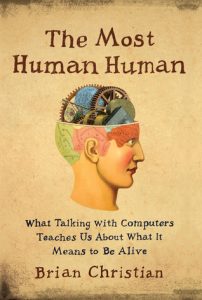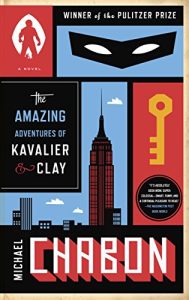
I have been asked in the past to list ten books that have “inspired, moved, and enlightened” me. Here’s my list:

Labyrinths, by Jorge Luis Borges
An inspiration that never runs out of batteries for me. Shines a new light on everything; Borges follows no one’s rules but his own.
I bought this for 50 cents at a garage sale when I was 17. The combination of story-telling and facility with the language blew my socks off. I immediately became an English major.
A book about the wild frontiers of chatbots reveals more than expected about what it means to be made of flesh and blood.
A wordless story about the immigrant experience. Peerless.
Who would have thought the Pulitzer Prize committee would fall in love with a post-apocalyptic tale with almost no dialogue? It’s clear why they did. Haunting for all the right reasons.
Mother’s milk for my own writing career. It’s a series of very short stories that are all about the same thing.
An early book that unmasked the deep influence of the invisibly small on the very large.
A rare combination of perfect wordsmithery and limitless imagination.
Oldie but goodie. Changed my life as a child.
Science fiction written in 1930. Describes the future of humans 2 billion years into the future. Boundless imagination.
What books would you put on your list? Which books made a difference for you?
"[A] neuroscientist and polymath."
- Wall Street Journal
"David Eagleman is the kind of guy who really does make being a neuroscientist look like fun."
- New York Times
"What Eagleman seems to be calling for is a new Enlightenment."
- Sunday Herald
"David Eagleman may be the best combination of scientist and fiction-writer alive."
- Stewart Brand
"A popularizer of impressive gusto...[Eagleman] aims, grandly, to do for the study of the mind what Copernicus did for the study of the stars."
- New York Observer
"David Eagleman offers startling lessons.... His method is to ask us to cast off our lazy commonplace assumptions.
- The Guardian
"Eagleman has a talent for testing the untestable, for taking seemingly sophomoric notions and using them to nail down the slippery stuff of consciousness."
- The New Yorker
















